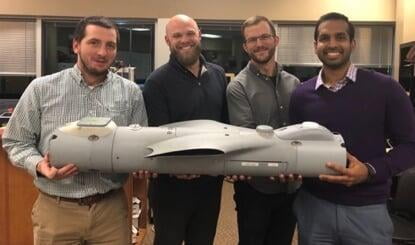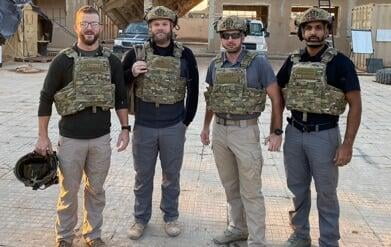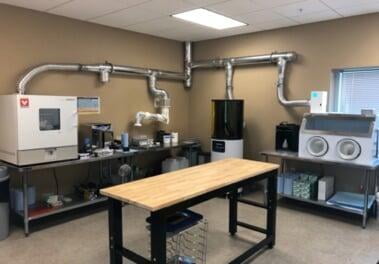By: Jennie Hempstead and Laura Dempsey
12 bases, nine installations, four countries, in 29 days
to transition essential technology
- Innovation doesn’t happen within a single entity or organization
- Partners become champions, so partner wisely
- End-users are integral to the process and value partial solutions over perfect engineering
- Innovation means working around barrier, after barrier

When we think of the front lines and the places where harm can come to men and women in uniform, it rarely feels like the kind of place to take a risk on a new technology. Battle is risky enough, and tested technology provides our military with confidence and security. So, the notion that agile, rapid technology innovation can take place in this kind of environment seems counterintuitive. Too much risk, without a known reward. However, those facing those real challenges may disagree. If a much-desired technology or capability is within 80% of “perfect”, they’re willing to accept the unknown.
WBI, along with the Air Force Research Laboratory, Joint Navigation Warfare Center (JNWC) and other partners experienced that willingness firsthand. In the fall of 2019, two WBI employees with brains wired for engineering and prototyping, and a Sprint-like approach to technology development were sent to the front lines to work hand-in-hand with the users that needed game-changing capability - Agile Meridian, a predictive geospatial technology. Desired for over 18 months prior to WBI’s involvement, USSOCOM was looking for a shot of adrenaline for the project and had worked to bring experts together, but common collaboration barriers (who pays, who develops, who transitions) were stalling the project.


